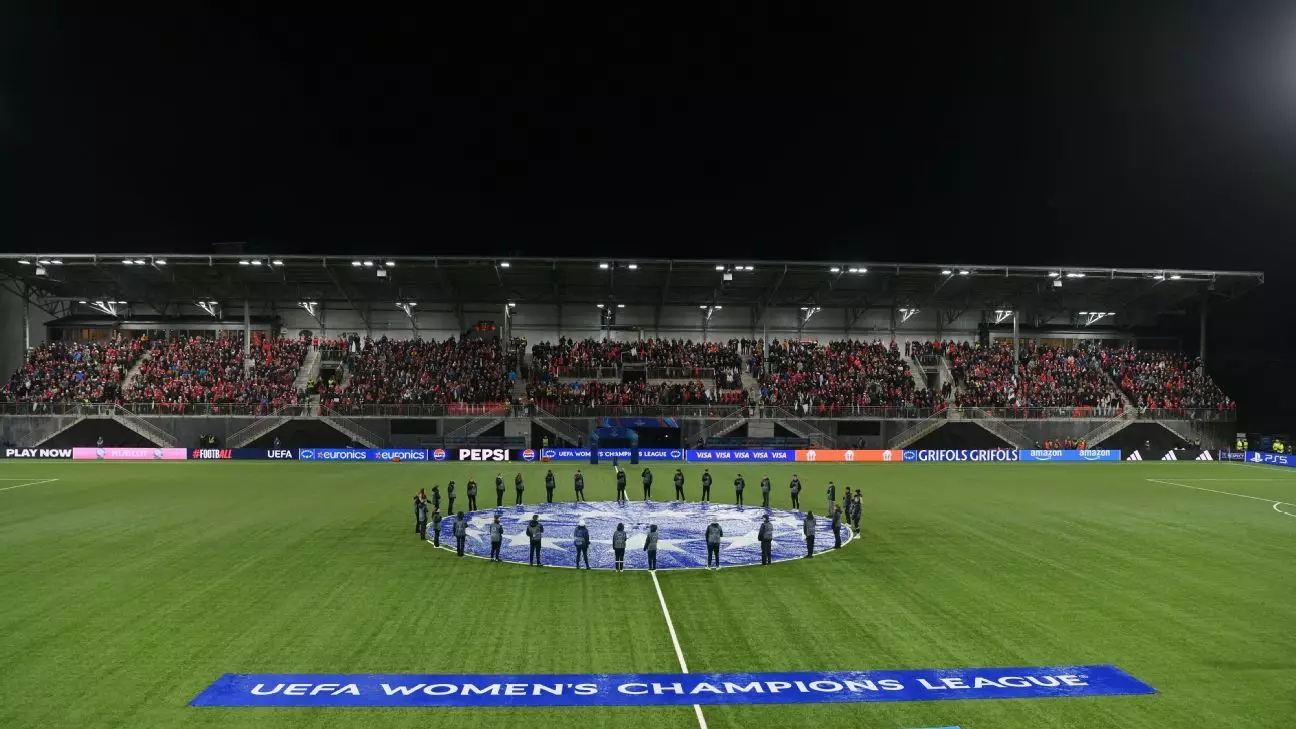In an inspiring display of resilience and advocacy for free speech, Norwegian football club SK Brann has emerged victorious in a pivotal legal battle against UEFA. The Court of Arbitration for Sport (CAS) ruled that the club would not be obligated to pay a €5,000 fine imposed for their fans’ chants and banners that referred to UEFA as the “UEFA Mafia” during a women’s Champions League match. This victory not only lifts the financial burden from Brann but also sends a compelling message across the football world about the sanctity of freedom of expression within sports.
The Context of the Controversy
The fine imposed on Brann stemmed from what UEFA termed “provocative messages of an offensive nature.” Yet, the term “offensive” often serves as a contentious battleground, particularly when it intersects with a fundamental human right: the right to free speech. Brann’s fans, expressing their discontent with UEFA’s operations, framed their chant as a satirical critique rather than a malicious affront. By choosing to challenge UEFA’s authority in this particular manner, the fans highlighted the ongoing struggles faced by individuals and organizations advocating for transparency and accountability in sports governance.
Implications for Free Speech in Sports
Brann’s triumph at the CAS is emblematic of a broader cultural discussion surrounding free expression in professional sports. As we witness heightened scrutiny over athletes’ and fans’ voices, the case suggests that there may be room for a more tolerant interpretation of what constitutes offensive speech in the context of football fandom. By emphasizing that the phrase “UEFA Mafia” should be viewed as a critical political statement rather than outright vulgarity, CAS has positioned itself as an ally of free speech.
This ruling is more than just a legal victory; it also serves as a banner of hope for clubs and fans advocating for greater freedoms. In a time when authoritative sports organizations grapple with managing public sentiment and backlash, upholding principles of free expression is crucial for fostering an authentic and engaging fan culture.
Reactions and Future Considerations
The reactions to the ruling have been mixed, mirroring the contentious nature of the debate. Brann’s President, Aslak Sverdrup, expressed pride in the ruling as a significant move for a Norwegian club to influence the entire European football landscape. Conversely, UEFA maintained its stance that the organization has a duty to ensure safety and order during matches. However, there lies a nuanced perspective here; can a governing body justify punitive measures when dissenting voices exercise their right to critique?
As football continues to evolve, the interplay between governance and free expression will undoubtedly face new tests. Brann, by championing the ideals of free speech, has instigated a critical dialogue that challenges traditional perceptions of authority in sports. This intersection of sport, politics, and rights will leave an indelible mark on the future of how fans and clubs interact with regulatory bodies. It is evident that clubs like Brann are not merely participate in the game; they are shaping a new narrative, one that leans towards empowerment and advocacy.

